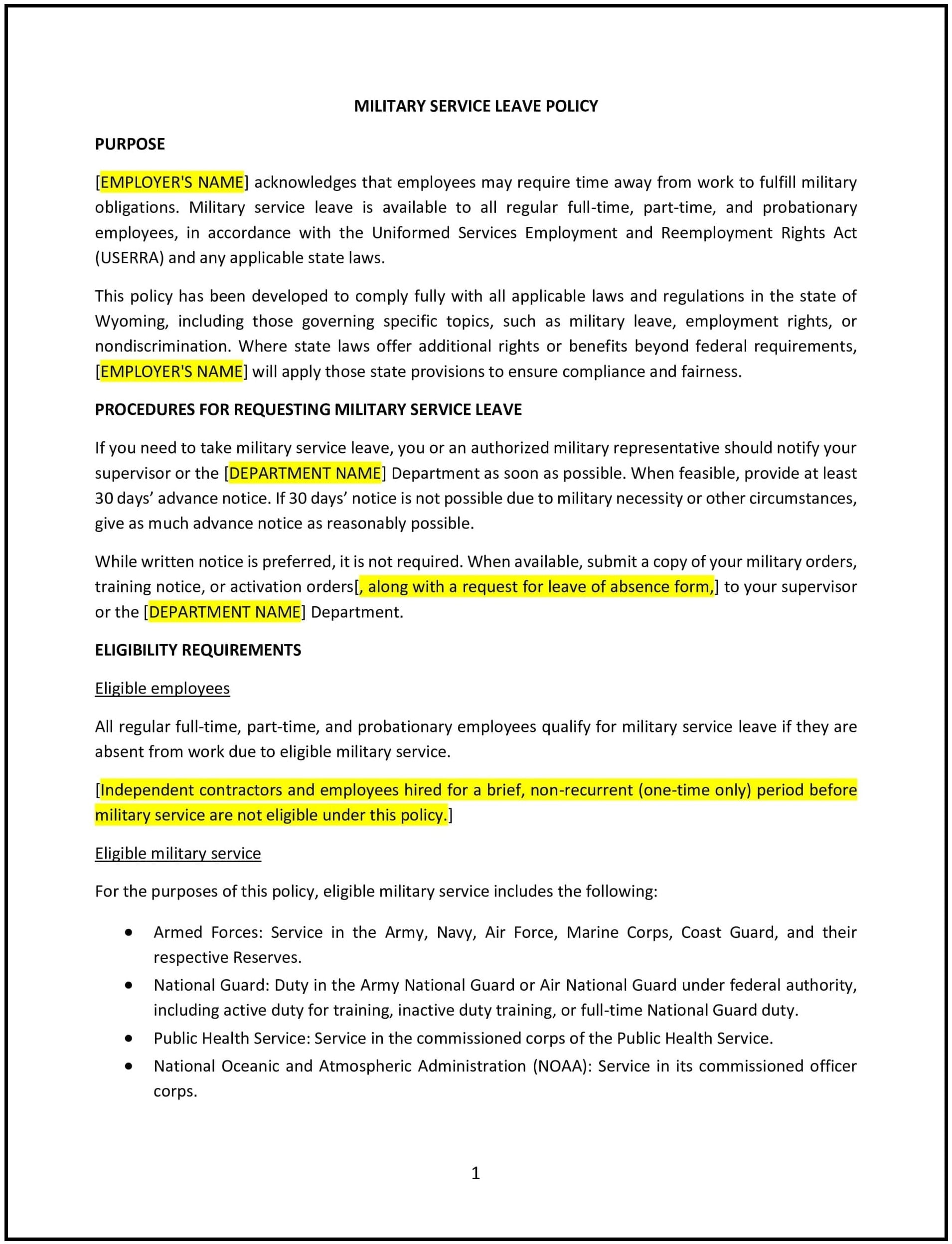Military service leave policy (Wyoming): Free template
Got contracts to review? While you're here for policies, let Cobrief make contract review effortless—start your free review now.

Customize this template for free
Military service leave policy (Wyoming)
In Wyoming, a military service leave policy ensures that employees fulfilling their military duties are supported and their employment rights are protected. This policy demonstrates the organization’s commitment to compliance with federal and state laws, such as the Uniformed Services Employment and Reemployment Rights Act (USERRA).
This policy outlines employee rights, leave procedures, and reinstatement guidelines for those serving in the military.
How to use this military service leave policy (Wyoming)
- Define employee rights: Clearly state that employees are entitled to military leave in compliance with USERRA and Wyoming state laws, including protection from discrimination or retaliation.
- Outline leave procedures: Provide steps for employees to notify their employer of military obligations, including advance notice requirements and submission of military orders.
- Detail compensation and benefits: Specify whether military leave is paid or unpaid, and explain how benefits, such as health insurance and retirement plans, are handled during the leave period.
- Explain reemployment rights: Include guidelines for reinstating employees to their previous positions or equivalent roles upon their return, as required by law.
- Support compliance: Align the policy with Wyoming laws and federal regulations to ensure fair treatment and adherence to legal standards.
Benefits of using a military service leave policy (Wyoming)
A military service leave policy provides several advantages for Wyoming businesses:
- Supports compliance: Supports compliance with USERRA and state laws, reducing the risk of legal disputes.
- Demonstrates support: Shows respect and appreciation for employees serving in the military, fostering a positive workplace culture.
- Protects employee rights: Safeguards job security and benefits for employees fulfilling military obligations.
- Enhances reputation: Positions the organization as a military-friendly employer, attracting talent and fostering goodwill.
- Adapts to local needs: Reflects Wyoming’s strong military connections and values.
Tips for using a military service leave policy (Wyoming)
- Communicate clearly: Share the policy with employees during onboarding and ensure it is easily accessible in the workplace.
- Provide training: Educate managers on employee rights and employer obligations under USERRA and Wyoming laws.
- Document leave: Maintain accurate records of military leave requests, approvals, and reinstatements to ensure transparency.
- Encourage open communication: Foster an environment where employees feel comfortable discussing their military commitments.
- Review periodically: Update the policy to reflect changes in laws, organizational practices, or workforce needs.